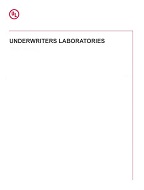Description
Please note: All interim revisions for this edition available at time of your purchase will be included.
1 Scope
1.1 These requirements cover primary, secondary, and coaxial types of flexible connector pipes intended for short length transfer and containment of the specific liquid fuels (or vapors thereof) identified in this standard, at commercial (public) or fleet (private) automotive motor vehicle fueling stations or similar fuel dispensing applications, and piping systems for fuel supply of generators, burners or similar equipment.
1.2 Connector pipes may be metallic, nonmetallic, or composite, but are limited to maximum 12 ft (3.65 m) lengths in nominal sizes up to 4 inches (102 mm) as flexible transition components within fuel dispensing and/or vapor recovery piping systems, typically intended for use in the following automotive fueling station applications:
a) Underground use (below surface but accessible such as within chase piping) when connected to underground tanks or underground pipes with expected exposures to soil, water, and soil fluids;
b) Sump use (enclosed tank, transition or dispenser types) when connected to pumps, valves, monitors, or dispensing devices with expected exposures to soil, water, soil fluids, and occasional sunlight;
c) Aboveground use (above surface but with additional physical protection) when connected to aboveground tanks or aboveground pipes with expected exposures to soil, water, soil fluids, and sunlight.
1.3 Connector pipes are intended for containment of automotive fuels and similar fuels or liquids under the expected use conditions, and exposures that have similar chemical, physical and material compatibility properties as represented in these requirements based on fuels formulated in accordance with 40 CFR Part 80, Regulation of Fuels and Fuel Additives, and meeting the following ASTM Fuel Specifications and blend limitations:
a) ASTM D-975, Standard Specification for Diesel Fuel Oils, with biodiesel blends up to a maximum of 5 percent (B5);
b) ASTM D-7467, Standard Specification for Low Blend Biodiesel, with biodiesel blends between 6 to 20 percent (B6 to B20).
c) ASTM D-4814, Standard Specification for Automotive Spark-Ignition Engine Fuel, gasoline or oxygenated gasoline, with limited ethanol blends up to a maximum of 10 percent (E10).
d) ASTM D-5798, Standard Specification for Ethanol Fuel Blends for Flexible-Fuel Automotive Spark-Ignition Engines, high blend ethanol, with gasoline/ethanol mixtures in the (E51 – E83) range.
e) Mid Range Ethanol Blends (E11 to E50) using variable mixtures of ASTM D4814 Low Blend Ethanol and ASTM D5798 High Blend Ethanol.
f) Isobutanol Fuel Blends (max iBu16) using variable mixtures of ASTM D4814 Gasoline (E0)_and ASTM D7862 Butanol (2-methyl-1-propanol isomer).
1.4 Products covered by this outline are intended to be installed and used in accordance with:
a) Flammable and Combustible Liquids Code, NFPA 30,
b) Code for Motor Fuel Dispensing Facilities and Garages, NFPA 30A,
c) Uniform Fire Code, NFPA 1,
d) International Fire Code published by the International Fire Council, or
e) Other applicable federal and state regulations for piping.
1.5 These products are factory manufactured and intended for on-site field assembly, inspection, and leak testing for the specified applications and use conditions by qualified persons in accordance with the manufacturer’s instructions and local requirements.
1.6 These products are intended to be periodically inspected and maintained for continued service, or taken out of service if necessary, by qualified persons in accordance with industry recommended practices and/or the manufacturers instructions.
1.7 These products have not been evaluated for use after natural disasters, fires or exposures to chemicals not representative of the test liquids or excessive physical damage beyond the expected assembly, installation and uses as identified in these requirements.
1.8 These products have not been evaluated for special use piping applications where exposed to heavy or continuous physical abuses, excessive mechanical stresses; or environments that are highly corrosive; or operate outside of the expected ambient use temperature range for significant times.
1.9 These requirements do not cover underground piping products for liquid fuels, which are found in Nonmetallic Underground Piping for Flammable Liquids, UL 971 or Outline of Investigation for Metallic Underground Piping for Flammable Liquids, Subject 971A.
1.10 These requirements do not cover aboveground piping products for gaseous fuels (such as natural gas, liquefied petroleum gas, propane, butane, etc.), which are found in the Standard for Flexible Metallic Hose, UL 536.
1.11 These requirements do not cover fuel dispensing and vapor recovery hose, which are found in the Standard for Hose and Hose Assemblies for Dispensing Flammable Liquids, UL 330, the Outline of Investigation for Hose and Hose Assemblies for Use with Dispensing Devices for Dispensing Gasoline and Gasoline/Ethanol Blends with Nominal Ethanol Concentrations up to 85 Percent (E0-E85), UL 330A, or the Standard for Hose and Hose Assemblies for Use With Dispensing Devices Dispensing Diesel Fuel, Biodiesel Fuel, Diesel/Biodiesel Blends With Nominal Biodiesel Concentrations Up To 20 Percent (B20), Kerosene, and Fuel Oil, UL 330B.
Product Details
- Edition:
- 1
- Published:
- 05/06/2016

